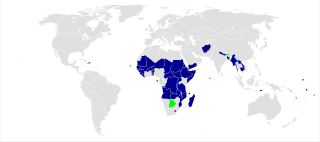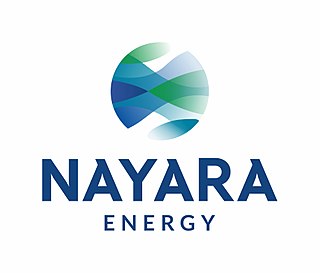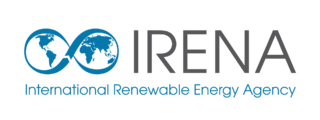Related Research Articles

The economy of Croatia is a high-income, service-based social market economy with the tertiary sector accounting for 70% of total gross domestic product (GDP). Croatia has a fully integrated and globalized economy. Croatia's road to globalization started as soon as the country gained independence, with tourism as one of the country's core industries dependent on the global market. Croatia joined the World Trade Organization in 2000, NATO in 2009, has been a member of the European Union since 1 July 2013, and it finally joined the Eurozone and the Schengen Area on January 1st 2023. Croatia is also negotiating membership of OECD organization, which it hopes to join by 2025. Further integration into the EU structures will continue in the coming years, including participation in ESA, CERN as well as EEA membership in the next 24 months.

The European Union (EU) is a supranational political and economic union of 27 member states that are located primarily in Europe. The union has a total area of 4,233,255.3 km2 (1,634,469.0 sq mi) and an estimated total population of nearly 447 million. The EU has often been described as a sui generis political entity combining the characteristics of both a federation and a confederation.

The euro is the official currency of 20 of the 27 member states of the European Union (EU). This group of states is known as the eurozone or, officially, the euro area, and includes about 344 million citizens as of 2023. The euro is divided into 100 cents.

Turkey has an emerging market economy, as defined by the International Monetary Fund. The country is a founding member of the OECD (1961) and the G-20 major economies (1999). Since 1995, Turkey is a party to the European Union–Turkey Customs Union. Turkey is often classified as a newly industrialized country by economists and political scientists; while Merrill Lynch, the World Bank, the IMF and The Economist magazine describe Turkey as an emerging market economy. Turkey is one of the Emerging 7 countries. The World Bank classifies Turkey as an upper-middle income country in terms of the country's per capita GDP. The CIA World Factbook adds Turkey to its list of developed countries (DCs) due to the country's status as a founding member of the OECD. With a population of 85.3 million as of 2022, Turkey is among the world's leading producers of agricultural products, textiles, motor vehicles, transportation equipment, construction materials, consumer electronics and home appliances.

The Group of Eight (G8) was an inter-governmental political forum from 1997 until 2014. It had formed from incorporating Russia into the Group of Seven, or G7, and returned to its previous name after Russia was expelled in 2014.
The World Summit on Sustainable Development 2002, took place in South Africa, from 26 August to 4 September 2002. It was convened to discuss sustainable development organizations, 10 years after the first Earth Summit in Rio de Janeiro.

Connie Hedegaard Koksbang is a Danish politician and public intellectual. She was European Commissioner for Climate Action in the European Commission from 10 February 2010 through 31 October 2014.

Everything but Arms (EBA) is an initiative of the European Union under which all imports to the EU from the Least Developed Countries are duty-free and quota-free, with the exception of armaments. EBA entered into force on 5 March 2001. There were transitional arrangements for bananas, sugar and rice until January 2006, July 2009 and September 2009 respectively. The EBA is part of the EU Generalized System of Preferences (GSP). The up-to-date list of all countries benefiting from such preferential treatment is given in Annex IV of the consolidated text of Regulation (EU) 978/2012.

Renewable energy plays an important and growing role in the energy system of the European Union. The Europe 2020 strategy included a target of reaching 20% of gross final energy consumption from renewable sources by 2020, and at least 32% by 2030. The EU27 reached 22% in 2020, up from 9.6% in 2004. These figures are based on energy use in all its forms across all three main sectors, the heating and cooling sector, the electricity sector, and the transport sector.
ENTSO-E, the European Network of Transmission System Operators, represents 39 electricity transmission system operators (TSOs) from 35 countries across Europe, thus extending beyond EU borders. ENTSO-E was established and given legal mandates by the EU's Third Package for the Internal energy market in 2009, which aims at further liberalising the gas and electricity markets in the EU.

Although the European Union has legislated, set targets, and negotiated internationally in the area of energy policy for many years, and evolved out of the European Coal and Steel Community, the concept of introducing a mandatory common European Union energy policy was only approved at the meeting of the European Council on October 27, 2005 in London. Following this the first policy proposals, Energy for a Changing World, were published by the European Commission, on January 10, 2007. The most well known energy policy objectives in the EU are 20/20/20 objectives, binding for all EU Member States. The EU is planning to increase the share of renewable energy in its final energy use to 20%, reduce greenhouse gases by 20% and increase energy efficiency by 20%.

Nayara Energy is a downstream company of international scale with prominence across the hydrocarbon value chain from Refining to Retail. Nayara Energy’s single site refinery at Vadinar, Gujarat contains a capacity of 20MMTPA, making it the second largest in India. On the globally accepted scale of 1-20, the complexity of Nayara Energy refineries goes to 11.8 making it one of the world’s most modern and complex refineries, amongst the highest globally. The refinery is supported by end-to-end captive infrastructure including SBM, crude oil tanker facility, water intake facilities, a multi-fuel power plant, product jetty and dispatch facilities. Nayara Energy is rapidly growing as a private fuel retail network in India, with over 6,000 operational retail outlets.

The European Union has concluded free trade agreements (FTAs) and other agreements with a trade component with many countries worldwide and is negotiating with many others. The European Union negotiates free trade deals on behalf of all of its member states, as the member states have granted the EU has an "exclusive competence" to conclude trade agreements. Even so, member states' governments control every step of the process :

The International Institute for Sustainable Development (IISD) is an independent think tank founded in 1990 working to shape and inform international policy on sustainable development governance. The institute has three offices in Canada - Winnipeg, Ottawa, and Toronto, and one office in Geneva, Switzerland. It has over 150 staff and associates working in over 30 countries.

The International Renewable Energy Agency (IRENA) is an intergovernmental organization mandated to facilitate cooperation, advance knowledge, and promote the adoption and sustainable use of renewable energy. It is the first international organisation to focus exclusively on renewable energy, addressing needs in both industrialised and developing countries. It was founded in 2009 and its statute entered into force on 8 July 2010. The agency is headquartered in Masdar City, Abu Dhabi. The Director-General of IRENA is Francesco La Camera, a national of Italy. IRENA is an official United Nations observer.
Climate change in Liberia causes many problems as Liberia is particularly vulnerable to climate change. Like many other countries in Africa, Liberia both faces existing environmental issues, as well as sustainable development challenges. Because of its location in Africa, it is vulnerable to extreme weather, the coastal effects of sea level rise, and changing water systems and water availability. Climate change is expected to severely impact the economy of Liberia, especially agriculture, fisheries, and forestry. Liberia has been an active participant in international and local policy changes related to climate change.
The 2021–2023 global energy crisis began in the aftermath of the COVID-19 pandemic in 2021, with much of the globe facing shortages and increased prices in oil, gas and electricity markets. The crisis was caused by a variety of economic factors, including the rapid post-pandemic economic rebound that outpaced energy supply, and escalated into a widespread global energy crisis following the 2022 Russian invasion of Ukraine. The price of natural gas reached record highs, and as a result so did electricity in some markets. Oil prices hit their highest level since 2008.
As part of the sanctions imposed on the Russian Federation as a result of the Russo-Ukrainian War, on September 2, 2022, finance ministers of the G7 group of nations agreed to cap the price of Russian oil and petroleum products in an effort intended to reduce Russia's ability to finance its war on Ukraine while at the same time hoping to curb further increases to the 2021–2022 inflation surge.
As part of the sanctions imposed on the Russian Federation as a result of the Russo-Ukrainian War, on 3 December 2022, the European Union (EU) agreed to cap the price of natural gas in order to reduce the volatility created by Russia's in the gas market.
References
- ↑ "PAP Member Countries". Archived from the original on 2008-03-12. Retrieved February 17, 2023.
- ↑ "Second High-Level Meeting (HLM) of the Africa-EU Energy Partnership (AEEP) - "Taking the Next Step: Africa and the EU are tackling energy challenges together"". IISD ENB. IISD. Retrieved February 17, 2023.
This article has not been added to any content categories . Please help out by adding categories to it so that it can be listed with similar articles. (February 2023) |